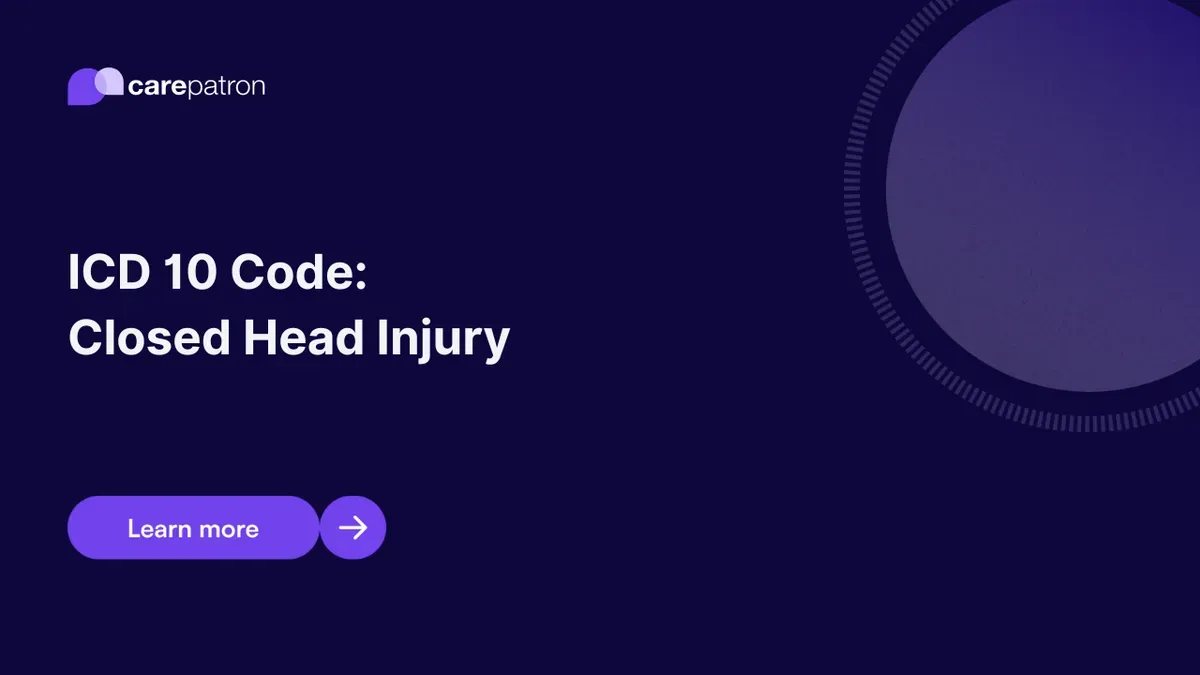
Closed Head Injury ICD-10-CM Codes
A thorough guide to ICD-10-CM codes for diagnosing and documenting closed head injuries in 2023.
Use Code
Commonly asked questions
ICD-10-CM codes are specific to closed-head injuries and should be employed in medical documentation when diagnosing, treating, or billing for these types of injuries. They enable a standardized representation of injury types and their severity.
Treatments can range from rest and over-the-counter pain medication for mild injuries to hospitalization, surgery, and long-term rehabilitation for more severe injuries.
A diagnosis code for a closed head injury provides a standardized way to represent the specific type and severity of brain injury a patient has suffered without an accompanying open wound or skull fracture. It's essential for both clinical management and administrative tasks.
EHR and practice management software
Get started for free
*No credit card required
Free
$0/usd
Unlimited clients
Telehealth
1GB of storage
Client portal text
Automated billing and online payments
